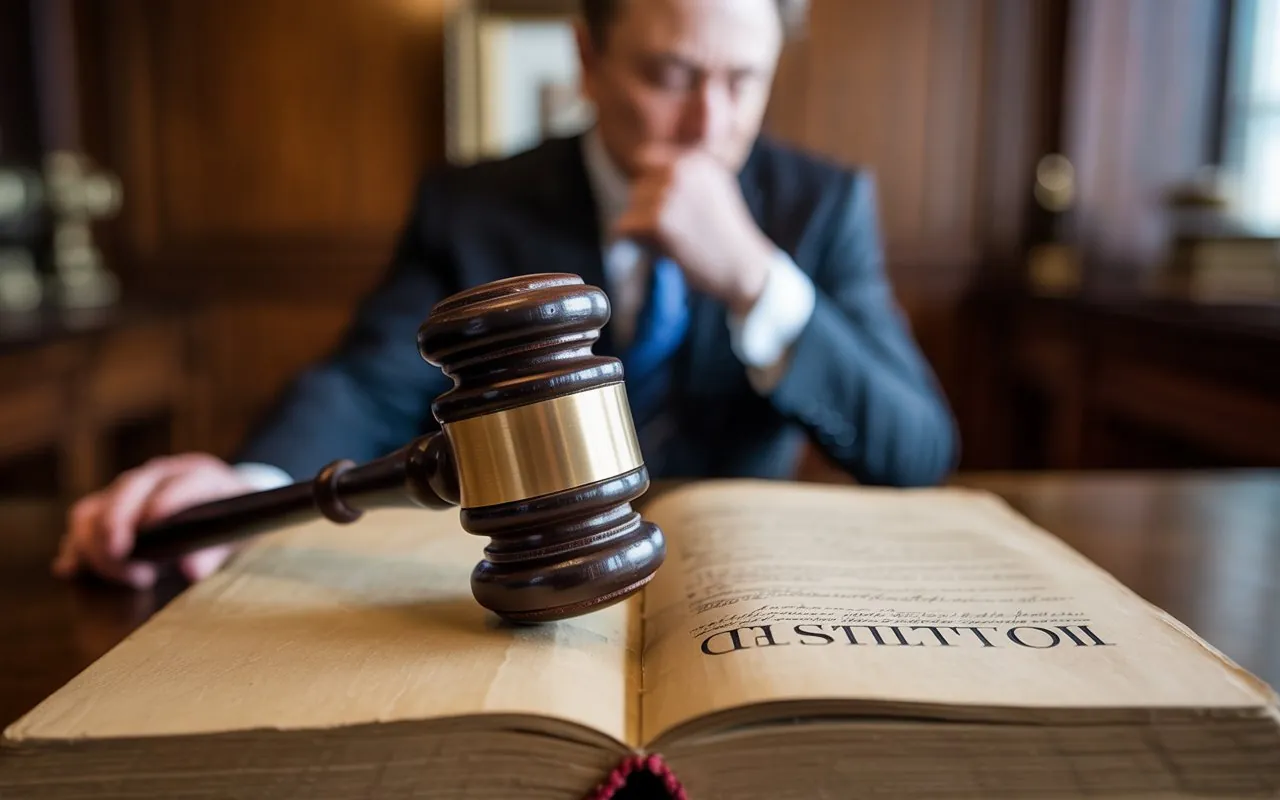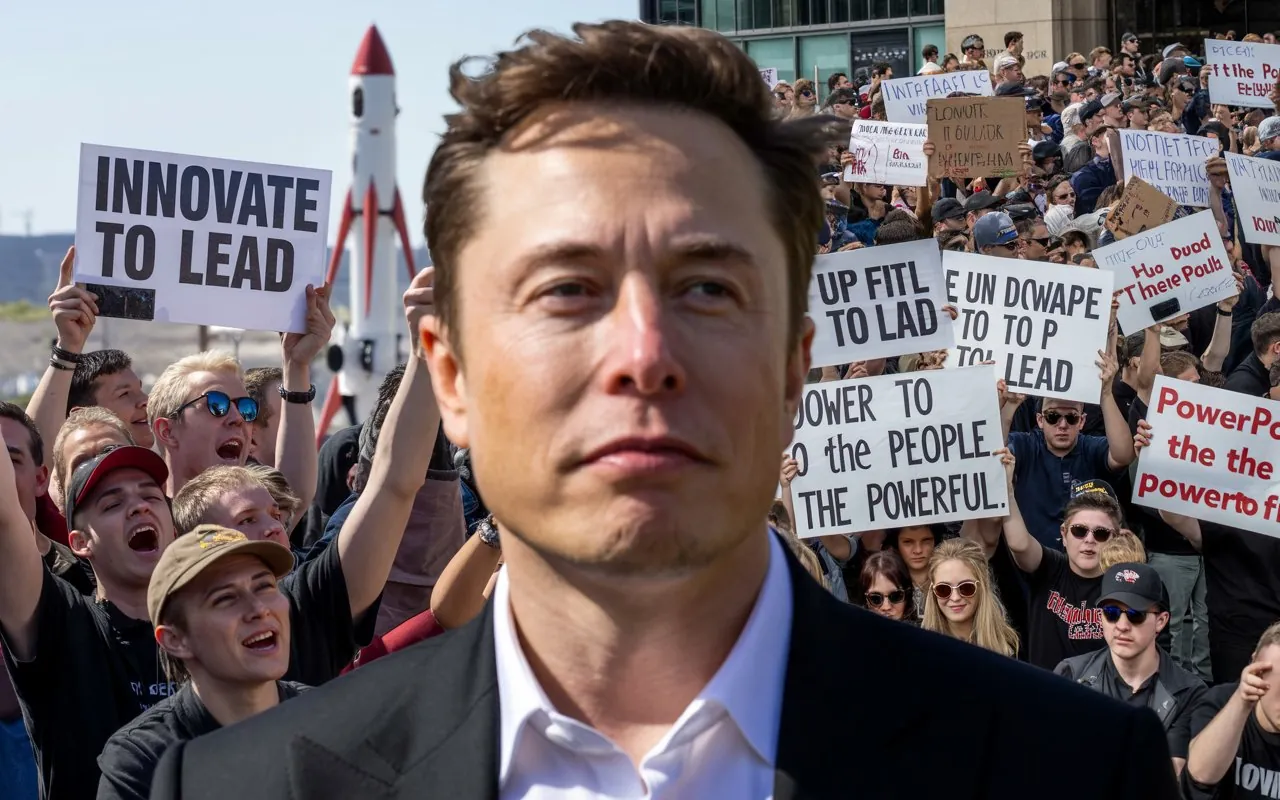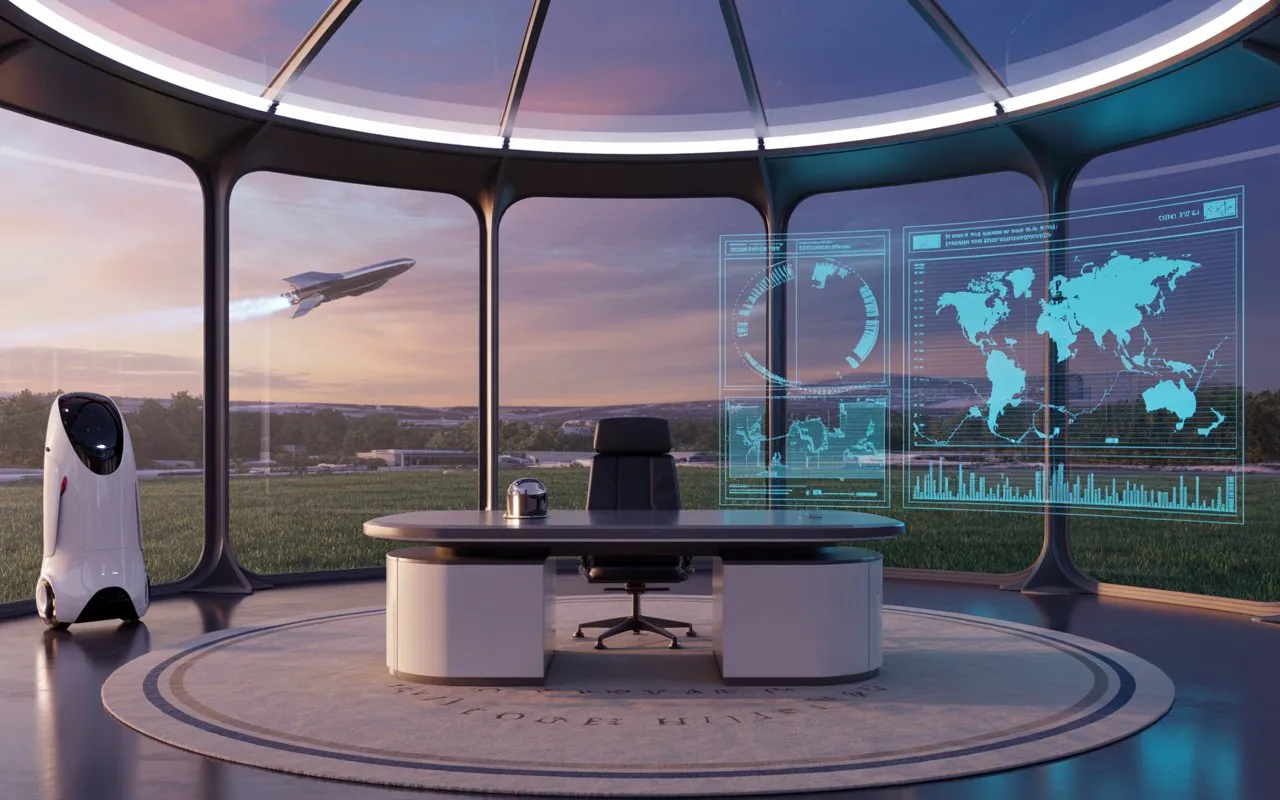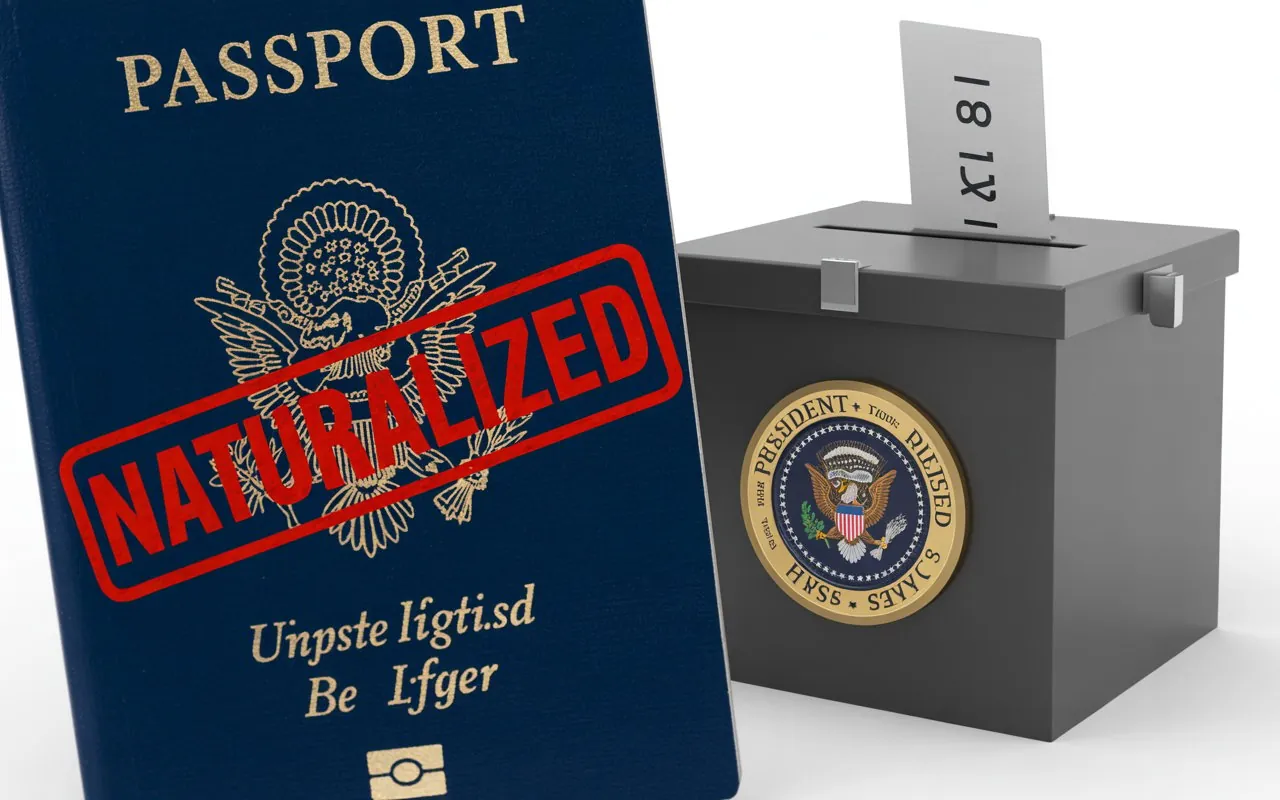In the modern era, where the lines between celebrity, entrepreneurship, and politics have blurred, few names generate as much speculation as Elon Musk. A figure synonymous with audacious innovation in fields from electric vehicles to space exploration, his every move prompts widespread discussion. This has led to one of the most persistent and intriguing political questions of our time: can Elon Musk run for president? This is not merely a trivial inquiry; it’s a topic that delves into the core of American constitutional law, the complexities of the political landscape, and the evolving expectations of leadership in the 21st century.
The fascination with this question is understandable. Many see Musk as a dynamic problem-solver, a disruptor who could apply his visionary thinking to national and global challenges. They look at his accomplishments with Tesla and SpaceX and wonder if that same drive could fix entrenched political issues. However, the path to the White House is not determined by public acclaim or corporate success alone. It is governed by strict legal precedents set forth by the nation’s founders.
To truly understand if we will ever see his name on a presidential ballot, we must first look past the headlines and examine the foundational laws of the land. The discussion of can Elon Musk run for president begins and ends with the U.S. Constitution.
The Constitutional Barrier: A Legal Analysis of “Can Elon Musk Run For President?”
The ultimate answer to whether an individual is eligible for the U.S. Presidency is found within Article II, Section 1, Clause 5 of the Constitution. This clause outlines three clear, non-negotiable requirements for any person aspiring to the nation’s highest office. These criteria are age, residency, and citizenship status. While Elon Musk easily meets two of these, the third presents a formidable, and likely insurmountable, obstacle.

The Natural-Born Citizen Clause
The most critical legal hurdle in the “can Elon Musk run for president” debate is the natural-born citizen requirement. The Constitution explicitly states that only a “natural born Citizen” is eligible for the presidency. Elon Musk was born on June 28, 1971, in Pretoria, South Africa. He later immigrated to the United States and became a naturalized citizen in 2002.
Under the long-standing and prevailing legal interpretation, a naturalized citizen is not a natural-born citizen. While the term “natural-born citizen” is not explicitly defined in the Constitution, it has historically been understood to mean someone born on U.S. soil or born abroad to at least one U.S. citizen parent. Because Musk was born in South Africa to non-U.S. citizen parents, he does not meet this standard. This single point is the primary legal reason the direct answer to can Elon Musk run for president is no.
Age and Residency Requirements
The Constitution also requires a president to be at least 35 years old and to have been a resident of the United States for at least 14 years. Elon Musk comfortably meets both of these criteria. He is well over the age of 35 and has resided in the U.S. for several decades, building his vast business empire within the country. While these requirements are not an issue, they cannot override the citizenship clause. The framework of presidential eligibility is a checklist where all boxes must be ticked. The analysis of can Elon Musk run for president always circles back to the one box he cannot tick.
Can the Law Be Changed?
Could the constitutional barrier be removed? Theoretically, yes, but the process is extraordinarily difficult. It would require a constitutional amendment, which involves a two-thirds majority vote in both the House of Representatives and the Senate, followed by ratification from three-fourths (38) of the states. Given the current hyper-partisan political climate, achieving such a broad consensus is virtually impossible. Alternatively, the Supreme Court could offer a radical reinterpretation of the “natural-born citizen” clause, but this would overturn centuries of legal precedent.
Therefore, changing the law to make it so can Elon Musk run for president is a possibility remains in the realm of extreme hypotheticals. The legal framework as it stands today provides a clear and definitive answer to the question. The real conversation about can Elon Musk run for president is less about what is legal and more about why people keep asking.
The Political Gauntlet: Beyond the Legal Question
Even if we were to set aside the constitutional barrier for a moment and entertain a hypothetical scenario, the political realities of a presidential campaign would present another set of monumental challenges. The question of can Elon Musk run for president is not just a legal one; it is also intensely political. Running a successful campaign requires navigating a complex and often brutal landscape.

Party Affiliation and Ideology
A key part of the can Elon Musk run for president puzzle is which political banner, if any, he would fly. Would he run as a Republican, a Democrat, or an Independent? Each path is fraught with difficulties.
His increasingly libertarian and free-speech-oriented views might align with certain factions of the Republican party. However, his positions on climate change and renewable energy could be at odds with the party’s establishment. Winning a Republican primary would require appealing to a diverse base of voters, a difficult task for a candidate with such a unique and sometimes unpredictable public persona.
Running as a Democrat seems even less likely, given his critiques of what he calls the “woke mind virus” and his emphasis on free-market capitalism. An independent run, while appealing to his image as a disruptor, is historically a losing strategy in American presidential politics. The two-party system is deeply entrenched, and third-party candidates struggle for media coverage, ballot access, and fundraising. The strategic consideration of can Elon Musk run for president highlights the rigid structure of American politics.
Fundraising and Campaign Machinery
Presidential campaigns are multi-billion dollar operations. While Elon Musk is one of the wealthiest people on the planet, self-funding an entire campaign would be an astronomical expense and could open him to criticism of attempting to buy the election. A successful campaign requires a massive fundraising network, a national ground game of volunteers and paid staff, and a team of seasoned political strategists. Building this machinery from scratch is a Herculean task. Therefore, the financial and logistical aspect of the can elon musk run for president question is staggering.
The Scrutiny Factor
Finally, any serious presidential candidate is subjected to a level of scrutiny that is arguably more intense than any other public role in the world. Every past business deal, every controversial statement, and every aspect of their personal life is meticulously examined by the media and political opponents. Elon Musk’s prolific and often unfiltered presence on social media would provide endless material for attack ads and opposition research. His leadership style and the various controversies surrounding his companies would be dissected on a global stage.
Any serious attempt to answer can Elon Musk run for president must account for the unparalleled level of scrutiny he would face. Many wonder if his temperament is suited for such a relentless environment. The question can Elon Musk run for president must also consider if he would even want to endure such a process.
Public Perception: How Voters View the “Can Elon Musk Run For President” Debate
Ultimately, in a democracy, the power rests with the voters. Even if all legal and political hurdles were cleared, the success of a presidential bid would depend on public perception. The debate over can Elon Musk run for president is also a debate about what qualities the public desires in a leader. Public opinion on Musk is deeply polarized, making him both an intriguing and a challenging potential candidate.

The Appeal of the Innovator
To his millions of supporters and admirers, Elon Musk represents progress, ambition, and effective execution. They see a visionary who tackles impossible problems and succeeds. They view him as an outsider, uncorrupted by the political establishment, who could bring a data-driven, engineering mindset to governance.
For these supporters, the question of can Elon Musk run for president represents a hope for a new kind of leadership—one that prioritizes long-term solutions and technological advancement over short-term political wins. They would be energized by his direct communication style and his focus on ambitious goals for the nation. The public’s fascination with can Elon Musk run for president is partly driven by this desire for a leader from outside the traditional mold.
The Skepticism of the Critics
On the other side of the spectrum, many critics view Musk with deep skepticism. They point to his sometimes erratic behavior, his controversial public statements, and the labor practices at his companies as reasons he is unfit for public office. His immense wealth and power are also a source of concern for those who believe he is disconnected from the struggles of ordinary Americans.
These critics argue that the very traits his supporters admire—his disruptiveness and his unilateral decision-making style—make the premise of can Elon Musk run for president a dangerous one. They believe the presidency requires empathy, collaboration, and a steady temperament, qualities they do not see in him. For this segment of the electorate, the answer to can Elon Musk run for president is a resounding “he shouldn’t.”
Bridging the National Divide
The United States is a deeply polarized nation. A successful presidential candidate must, to some extent, be a unifier. Given the strong and often opposing views on Elon Musk, his candidacy would likely be one of the most polarizing in modern history. He would energize his base to an incredible degree but would also face ferocious opposition.
Ultimately, the public’s answer to can Elon Musk run for president would be deeply divided, reflecting the existing fractures in American society. His ability to build a broad coalition beyond his core followers would be the central challenge of any hypothetical campaign. The ongoing public discourse around can Elon Musk run for president is a testament to this deep division.
A Hypothetical World: What If Elon Musk Can Run For President?
Let us engage in a thought experiment. Imagine a world where the constitutional barrier has been removed and the question can Elon Musk run for president moves from theoretical to practical. What would such a campaign and potential presidency look like? The impact would undoubtedly be transformative.

The Impact on the Political Landscape
If can Elon Musk run for president were a reality, it would fundamentally reshape the American political landscape. His candidacy would attract unprecedented media attention, likely dwarfing that of his rivals. His use of social media would allow him to bypass traditional media gatekeepers, communicating his message directly to millions of followers.
This would force other candidates to adapt their strategies and engage with him on his chosen platforms. The entire dynamic of the race would shift, potentially leading to a more volatile and unpredictable election cycle. The conversation about can Elon Musk run for president isn’t just about him, but about how his entry would change the game for everyone else.
A Technocratic Policy Platform
A key part of the “what if can Elon Musk run for president” scenario is his potential policy agenda. It is likely he would run on a platform of radical innovation and efficiency. His policies would probably focus on accelerating the transition to sustainable energy, investing heavily in artificial intelligence for government services, expanding America’s presence in space, and streamlining federal bureaucracy.
He might propose market-based solutions to social problems and champion a form of “government as a startup.” This focus on a technocratic future would be a core element of his appeal. The debate would shift from traditional left-right issues to a new axis of stagnation versus innovation. The policy implications of the can Elon Musk run for president question are vast and fascinating to consider.
A New Style of Governance
The thought experiment of can Elon Musk run for president must extend to his potential governing style. As president, he would likely operate much as he does as a CEO: with a focus on “first principles” thinking, a demanding pace, and a low tolerance for bureaucratic delay. He might communicate policy decisions directly to the public via X (formerly Twitter), potentially clashing with Congress, the courts, and the established norms of governance.
This could lead to rapid progress on his key initiatives but also to significant constitutional and political conflict. His leadership would be a constant stress test on the checks and balances of the American system. The prospect of what would happen if can Elon Musk run for president became a reality is both exciting to some and terrifying to others.
The Final Verdict on “Can Elon Musk Run For President?”
After exploring the legal, political, and social dimensions of this captivating question, we must return to the foundational issue. The structure of the U.S. Constitution provides a clear and unambiguous answer that overrides all other speculation and debate.

So, can Elon Musk run for president? The legal answer, based on a centuries-old constitutional requirement, is no. As a naturalized citizen, not a natural-born one, he is ineligible to hold the office of President of the United States. This is the definitive, bottom-line answer.
Beyond this legal fact, the political hurdles are immense, and public opinion on his suitability for the role is deeply fractured. While the thought of his candidacy is a powerful vehicle for discussing the future of leadership and innovation, it remains a thought experiment. The enduring nature of the question can Elon Musk run for president speaks volumes about our current political moment and the public’s desire for transformative figures.
And so, while we explore the fascinating inquiry of can Elon Musk run for president, the answer remains firmly rooted in constitutional law. His influence on society will continue to be profound through his technological ventures and his powerful public platform, but the path to the Oval Office is, by law, closed to him. The question can Elon Musk run for president will likely persist in public discourse, not because the answer is ambiguous, but because of what the question itself represents: a search for a different kind of future.